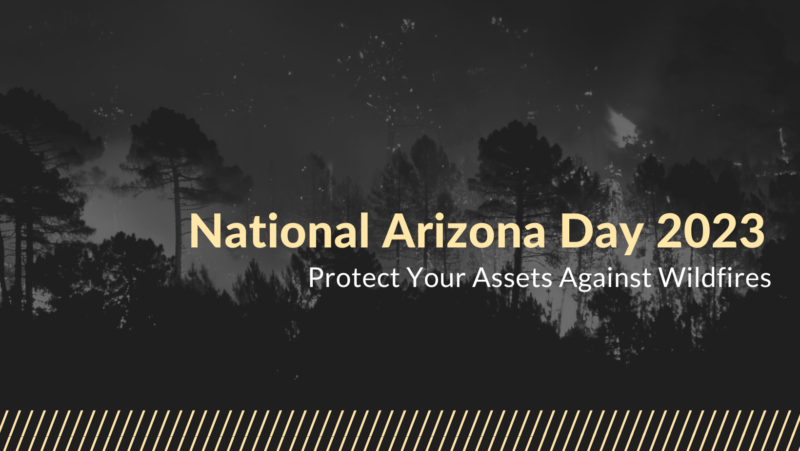Wildfire Preparedness: Protect The Health of Your Assets
Arizona Day is celebrated on June 21st every year. While the locals swear the weather is bearable and the many sunny days brighten their lives, the interchanging heat levels make this great state susceptible to wildfires year-round. With temperatures continuing to soar this summer, Arizona expects this wildfire season to be more severe than last. Consequently, understanding wildfire risk on a property has never been more critical.
Wildfires are uncontrollable perils that can be devastating to business owners and homeowners in our communities. Every year, wildfires burn across the U.S., and more and more people live where wildfires are a real risk. Nearly 45 million homes abut or intermingle with wildlands, and more than 72,000 U.S. communities are now at risk. But by working together, residents can make their property and neighborhood much safer from wildfire.
Understanding Wildfire Risk
The CoreLogic® Wildfire Risk Score is a deterministic wildfire model which is as comprehensive as it is granular. It covers 16 states, including Arizona. It evaluates the risk of a property by giving insight into a potential wildfire occurrence. Wildfire risk is dependent on the physical world, and that changes all the time. A risk score should be no different. The score is updated annually to account for changes in urban and residential growth, prior wildfires, and other factors influencing the propensity to burn.
No matter what state the evaluation is occurring in, the proprietary model used to make risk determinations is the same. The seamless and uniform wildfire risk analysis shows users that High Risk is not defined by state boundaries and that underwriting decisions can be based on uniform and consistent wildfire risk designations across state lines. The following six factors evaluated serve to incorporate the type and amount of fuel readily available for a wildfire as well as the topography of the land to enable its spread:
- Slope: the steeper the hill, the faster the fire can spread.
- Aspect: the cardinal direction which the slope is facing often carries implications about the condition of the fuel.
- Fuel: different types of flora affect the spread of fire differently.
- Surface Composition: Areas that have burned before tend to burn again.
- Drought: Drought can kill healthy vegetation or stress vegetation making it less likely to resist disease and insects, both of which increase the dry fuel load.
- Wind: Hot, dry winds remove moisture from fuels making them more likely to burn.
Reducing the Wildfire Impact
Unlike other natural hazards, which may not occur yearly, wildfire damage is expected annually—the only questions are where and to what extent. As such, it is paramount to understand how susceptible each property is to wildfire and what factors influence the spread of wildfire so you can begin to protect the health of your portfolio. Here are some expert tips to help them reduce the impact of wildfires:
Wildfire Tips for Businesses
- Create a buffer around your building
- Install and maintain metal vent screens
- Remove items under building attachments
Wildfire Tips for Homeowners
- Clean leaves and other debris
- Move flammable materials
- Keep your lawn hydrated and well-maintained
- Assemble an emergency supply kit
- Create an evacuation plan
Insuring Against Wildfires
Wildfires can spread fast, cause harm, and destroy homes. Your home and business are likely to be your most significant assets, and it is essential to safeguard them. Proper insurance protection can help you rebuild your home or business and replace your belongings following a wildfire. Here are five tips you should follow to make sure you’re protected against wildfires:
- Conduct an annual insurance check-up
- Understand your policy’s coverage details
- Make sure you are insured at the correct value
- Keep an updated home inventory
- Do not forget about coverage if you are a renter
Contact Us
Every insurance policy is different; depending on your policy, you may not be adequately protected against wildfire risks. That is why working with Shepherd Insurance is so important to evaluate whether you are covered should you experience a wildfire-related loss. Do not wait until it is too late—learn more about your coverage today.
We have offices in Payson, Prescott, and Tucson, and we might be slightly biased, but we believe we have the best team in the state. Our knowledgeable and friendly team is here to help you. Happy National Arizona Day.


